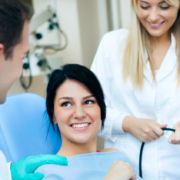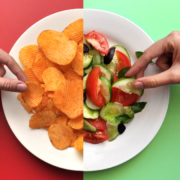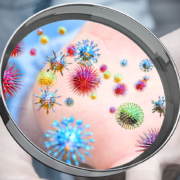New Probiotics Research Results
The methodology used in the two studies I’m reviewing is complicated. I mentioned the endoscopic biopsies on Tuesday (and a big thanks to the people who volunteered for an endoscopy); subsequent analysis of the actual microbiome utilizes very complex techniques. I’m not an expert in those techniques so I can’t assess the results the way I normally would, but here are the results published by the authors.
The first study examined the changes in the microbiome when subjects were given either a placebo or commercially available probiotic for 28 days. The most significant finding was that the results were highly specific to the individual. That’s no surprise for one reason: no two microbiomes are the same, even in people who live in the same household. That a probiotic with 11 different bacteria would have different effects on the 14 subjects in the intervention group is no surprise. Some showed no growth of any of the strains of the probiotic, while other subjects’ tests showed strains that took up residence.
The second study examined the effects of antibiotics when taken by healthy subjects under three conditions: no intervention (seven subjects), the commercially available probiotics used in the first study (eight subjects), and a self-donated fecal transplant (six subjects). They found that the microbiome of the subjects who took the probiotics was not restored to their pre-antibiotic state; the supplemental probiotics seemed to colonize, leading the authors to suggest that they impaired the re-colonization of the original microbiome. The microbiome of the other two groups seemed to recover.
Should we avoid probiotics as a result of these studies? I’m taking mine and explain why I’ll keep taking them on Saturday.
What are you prepared to do today?
Dr. Chet
References:
1. DOI:https://doi.org/10.1016/j.cell.2018.08.041.
2. DOI:https://doi.org/10.1016/j.cell.2018.08.047.







 SkinMicrobiome
SkinMicrobiome
